QuestionHi!
I recently took my 3 year old female cat to the vet after a dramatic change in her behavior. She was suddenly lethargic and not eating or drinking much, and was very unsteady on her feet. The vet took blood tests and the results came back as feline pancreatitus. He said to bring her in if she did not seem to improve, but she is slowly becomming more active and definitely eating and drinking more.
The problem is her "sister" also a 3 year old female from the same litter, has now become extremely lethargic and is not eating or drinking. She is not shakey like the other cat, however is very weak.
Is it possible both cats have the same thing and is this disease something that could run in that family, or could she have caught it from the other one? I do not know much about the disease and was wondering if this could have been prevented? I do plan on taking the other cat to the vet first thing Monday, but also wondered if there was something more I could do?
AnswerHi Christina!
I'm so sorry your cats are sick. I know how stressful it is when our "furbabies" aren't feeling their best. I will try to provide you with as much information as I can. Hopefully it will be helpful to you.
The pancreas is a vital organ which is located in the right side of the abdomen. The two functions of the pancreas is to produce enzymes to help digest food and to produce insulin. Pancreatitis is when the pancreas becomes inflamed. Pancreatitis is seen most commonly in the dog and occasionally in the cat. There is no age, sex, or breed predisposition.
The cause of pancreatitis in felines is unknown. In dogs, it is often associated with rich and fatty meals or the administration of cortisone, but these associations have not been found with feline pancreatitis.
Under normal conditions, the digestive enzymes produced by the pancreas are activated when they reach the small intestine. With pancreatitis, the enzymes are activated prematurely in the pancreas and not in the small intestine. This causes the digestion of the pancreas itself and the clinical signs will begin.
The diagnosis of pancreatitis is based on three criteria. Laboratory testing, radiographs (x-rays)and/or ultrasound. Pancreatitis is typically manifested by nausea, vomiting, fever, painful abdominal area and diarrhea. If the attack is severe depression will occur.
Pancreatitis is successfully treated if caught early with prompt medical therapy. The only way to "turn off" the pancreas is to withhold all fluids and foods. This is also accompanied by IV fluids and anti-inflammatories.
Most forms of pancreatitis have a very good prognosis.
It is however common for pancreatitis to repeat in animals that have experienced it.
With this being said...it makes me wonder if pancreatitis is exactly what your cat has. It is in no way contagious or hereditary. Have your cats gotten into anything that may have caused this? Plants, ant traps, ect.? I can honestly say that I have only ever seen 3 cats in all the years I've worked with animals that have had pancreatitis. Two cats from the same household would be very, very rare.
Maybe a second vet opinion would be beneficial?
I wish you the best of luck and please let me know how your babies do!
Hilary

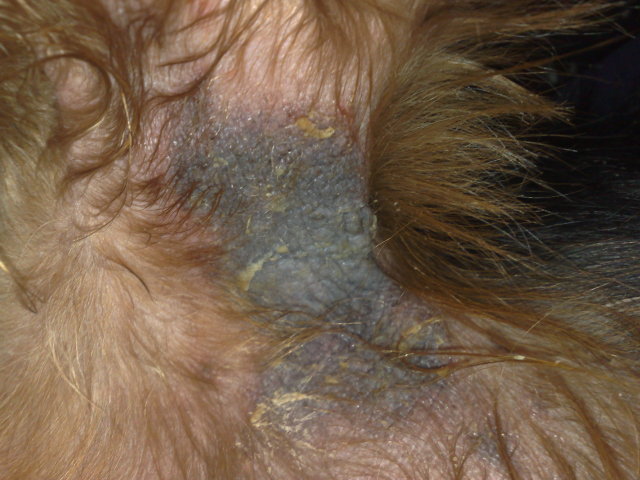 My yorkie has a skin problem
Question
my yorkie
I was wondering if you can help me i
My yorkie has a skin problem
Question
my yorkie
I was wondering if you can help me i
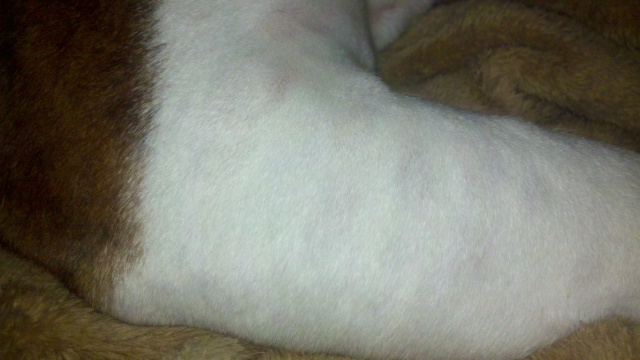 Lumps on Dogs Legs and sides
Question
Front leg
This morning when I went to work my
Lumps on Dogs Legs and sides
Question
Front leg
This morning when I went to work my
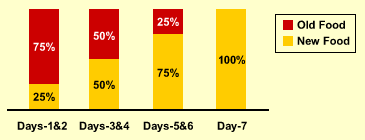 My cat is acting wierd
QuestionQUESTION: Hi my cat is acting weird, i know tha
My cat is acting wierd
QuestionQUESTION: Hi my cat is acting weird, i know tha
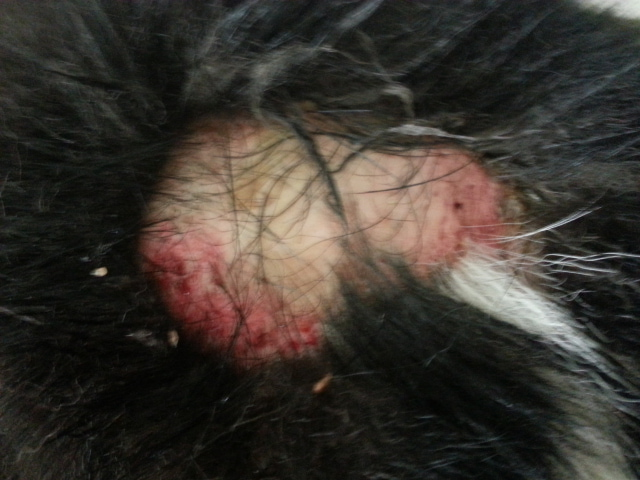 German shepherd skin issue please help
Question
back side back and tail
It start
German shepherd skin issue please help
Question
back side back and tail
It start
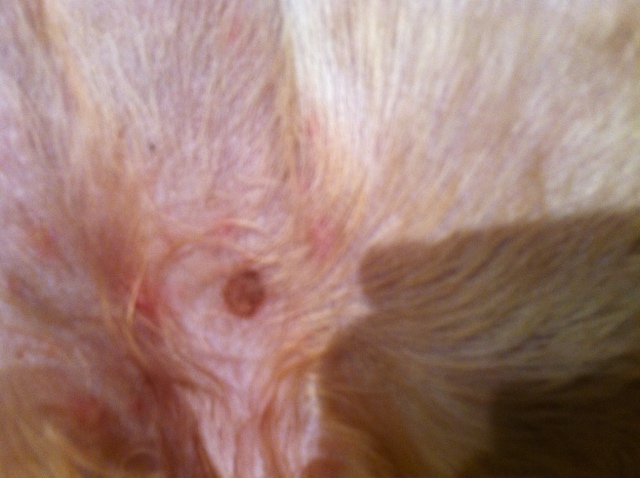 Red Blisters on Dog Belly
Question
Raley Belly
Yesterday I noticed a round
Red Blisters on Dog Belly
Question
Raley Belly
Yesterday I noticed a round